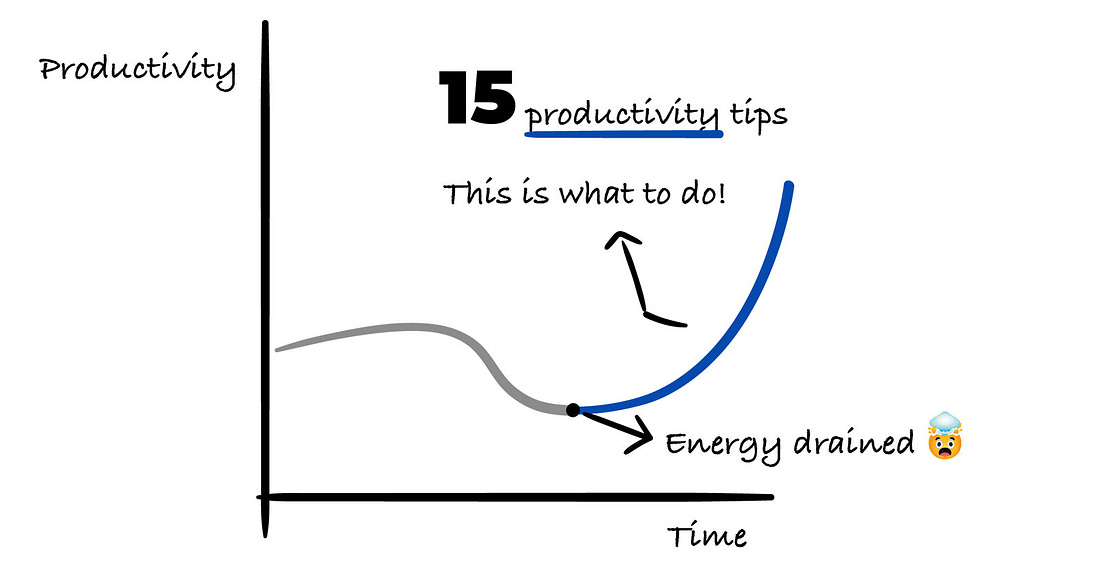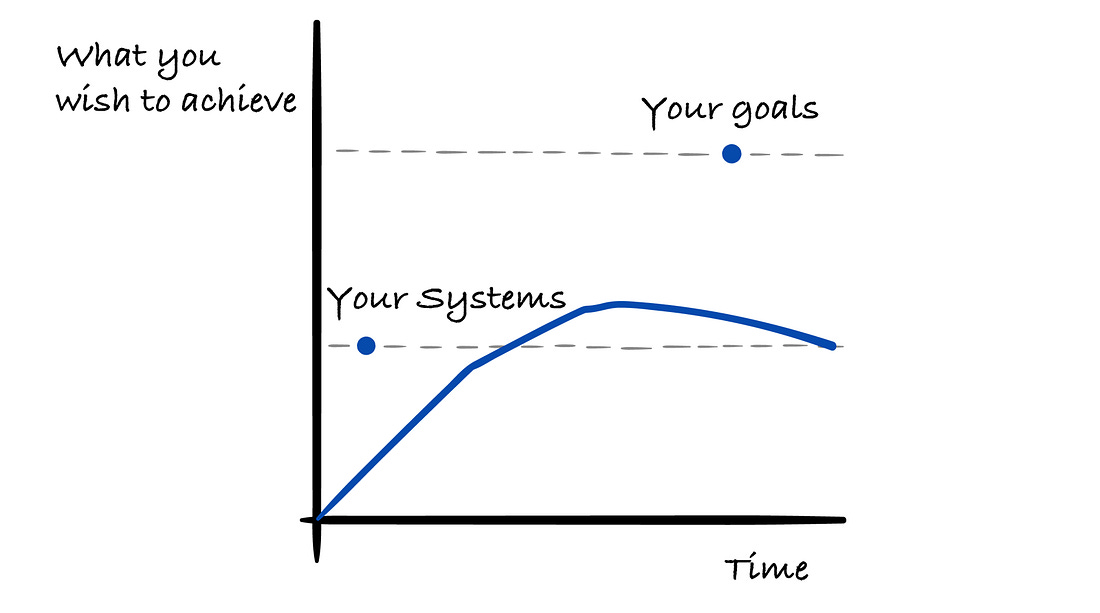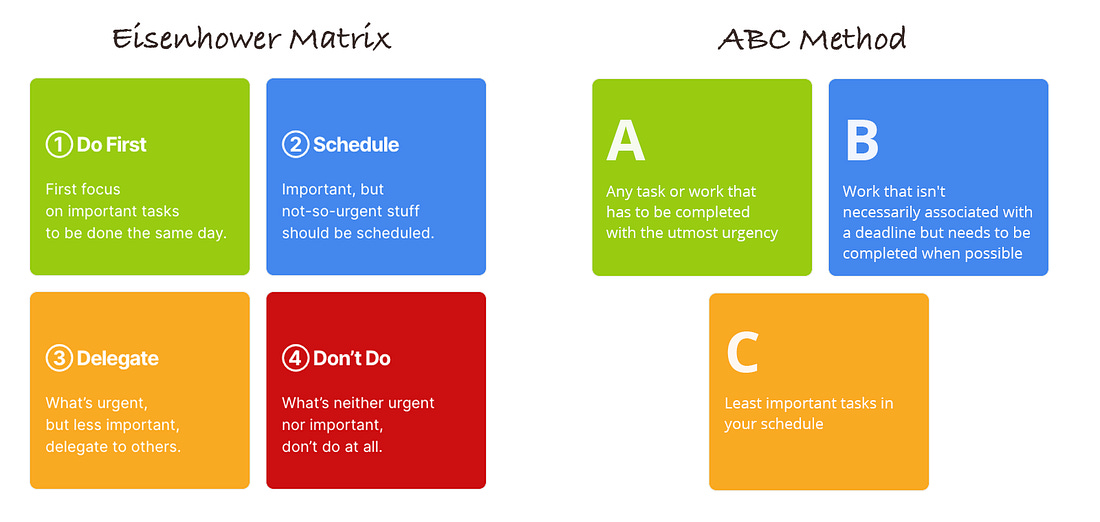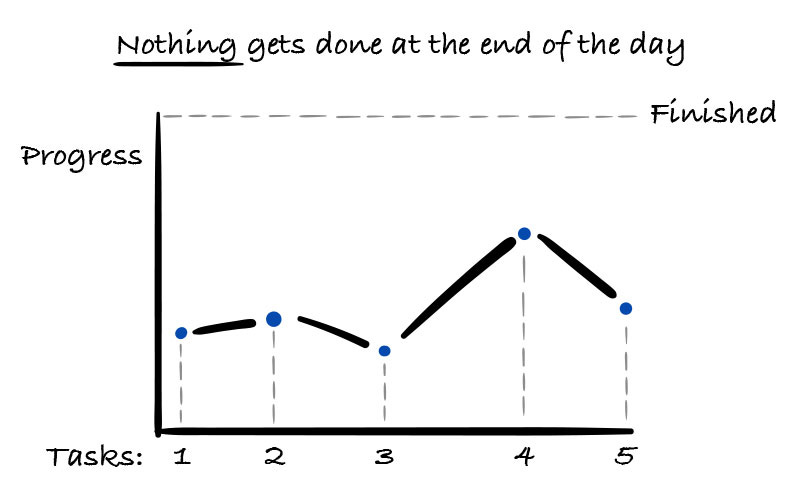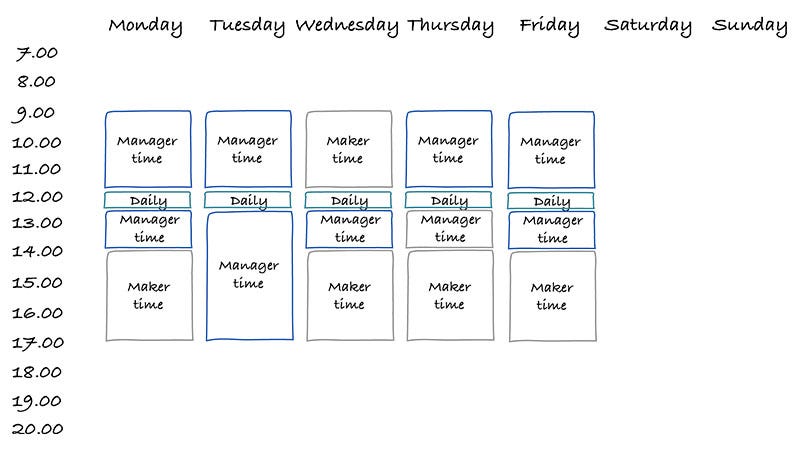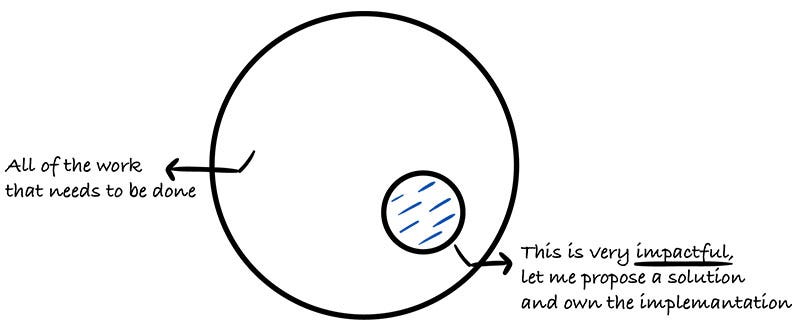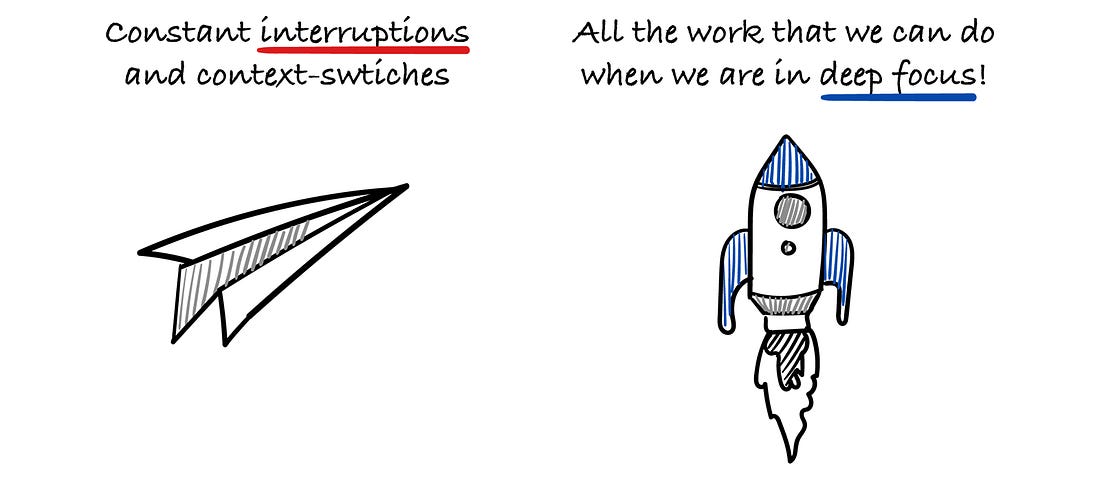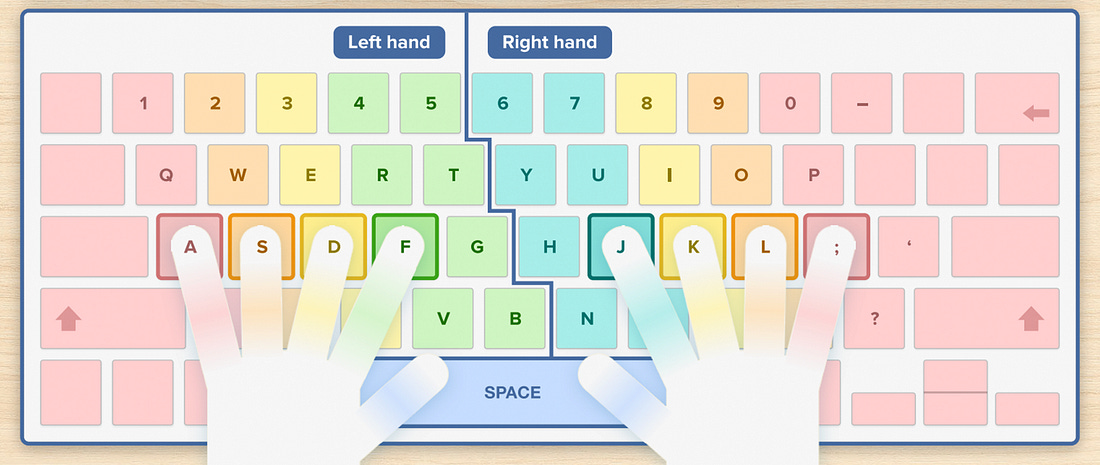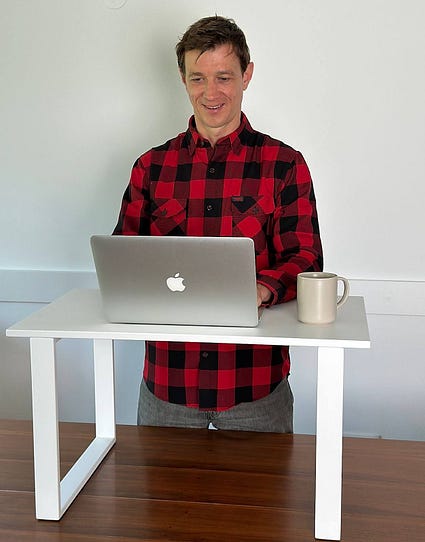15 Productivity Hacks Every Engineer & Manager Should Know
- Gregor Ojstersek and Aleš Žehelj from Engineering Leadership <gregorojstersek@substack.com>
- Hidden Recipient <hidden@emailshot.io>
15 Productivity Hacks Every Engineer & Manager Should KnowSimple strategies to work smarter, deliver better results and have more time for yourself!Free AI Code Reviews – Now in VS Code (Sponsored)This week’s newsletter is sponsored by CodeRabbit. They are now supporting instant Code Reviews in your favorite IDEs like VS Code, Cursor, and Windsurf. Get senior engineer level code reviews for free, directly inside your editor. Every commit you make gets instantly reviewed with context-aware feedback that helps you catch bugs before raising a PR. No subscriptions. No friction. Just smarter and faster Code reviews. What you get:
Review your code before the PR review actually starts. Thanks to CodeRabbit for sponsoring this newsletter. Let’s get back to this week's thought! IntroBeing busy does not equal to being productive. Let’s get straight into them. Aleš, over to you! 1. Start planning: Think in systems, not just to-do listsWithout structured planning, we can get buried in tasks, projects and drown in meetings and reactive tasks. Planning across different time periods helps you see what matters now, and what’s coming next. And also this is very important to keep in mind:
Top tips:
2. Time blocking: Own your calendar, own your dayOur days can get hijacked quickly by interruptions, ad-hoc requests and low-value tasks if we’re not owning our time. Doing context-switching and multitasking is not the way to go. Time blocking is a powerful way to protect your focus and balance your workload. If you don’t schedule your time, someone else will. Here are my top tips:
3. Set priorities: Don’t confuse activity with progressSetting priorities is a very simple principle that anyone can use. But very few people actually use it. If you prioritize poorly, you can be very efficient → but at things that aren't important. Prioritizing helps you spend your best brainpower on what actually drives progress → resolving critical problems, or making decisions that move the team forward. Pro tips:
4. Apply the two-minute rule: Eliminate micro-tasks before they pile upTiny tasks like replying to a Slack message, email, reviewing PRs can either be handled quickly or they pile up into a mental backlog that drains your focus. The Two-Minute Rule (from David Allen's Getting Things Done) keeps your cognitive load light and your task list clean. Pro tips:
5. Minimize context-switching: Protect your focus, protect your outputThe most amount of work we do is when we are in deep focus for a longer amount of time. But constant interruptions, shifting priorities or changing directions negatively impact it.
Multiply that by a few times a day and your best hours are gone. My top tips:
6. Avoid multitasking: Master one task at a timeMultitasking might feel efficient → but it’s actually a productivity trap. Switching between writing code, checking messages and attending meetings creates mental clutter and increases the chance of errors. The brain isn’t built to multitask, it just toggles attention back and forth, losing efficiency and depth each time. Pro tips:
7. Limit notifications: Control your tech before it controls youNotifications are tiny attention thieves. A ping from Slack, a notification of a new email or a message on Teams might seem harmless, but each one breaks your focus and pulls you out of the deep work mode. For engineers in deep work or managers in strategic thinking, even a brief interruption can derail work momentum. Pro tip:
8. Schedule your meeting (manager) time and maker timeEngineers are makers and they need long, uninterrupted blocks to build, think + solve and managers are often managers of time → switching between planning, reviewing, communicating. But when these two worlds collide, productivity suffers because of it. That’s why separating “maker time” (focus work) from “manager time” (meetings, check-ins) is key to a productive day. Pro tips:
9. Stop procrastinating: Start before you feel readyProcrastination isn't just a bad habit, it’s often a silent performance killer. Whether it's starting a complex project, tackling a hard technical challenge or giving a tough piece of feedback, putting things off drains mental energy and builds unnecessary stress. Delayed decisions or actions can slow down entire teams or project timelines. Here are my tips:
10. Break down bigger tasks into smaller onesBig tasks often feel overwhelming, not because they’re impossible, but because they’re vague.
That’s where breaking tasks into smaller, actionable steps comes in. Smaller tasks feel doable, boost motivation through quick wins, and eliminate the paralysis of trying to “eat the whole elephant” at once. Pro tip: If you’re stuck, the task is probably too big. Zoom in until it feels actionable. 11. Focus on high-impact work: Work smart, not just hardBeing busy doesn’t equal to being productive. The real value at work lies in solving the right problems, not just doing more tasks. High-impact work drives results, improves systems and moves the business forward. Pro tips:
12. Practice deep work sessions: Get more done in less timeDeep work, uninterrupted, focused effort on cognitively demanding tasks → this is where the real progress happens. But these tasks can’t happen in a constant stream of pings, meetings, and distractions. My top tips:
13. Improve your typing speedTyping might seem basic, but in reality, it’s a core skill for any tech professional. We all spend a lot of time typing and if your typing is slow or error-prone, it adds friction to nearly everything you do → over time, that adds up. Pro tips:
14. Take regular breaks: Recharge to perform at a high level
Short breaks boost focus, enhance creativity, prevent mental fatigue and are essential to recharge our body & mind. Plan them in advance or when scheduling your work day. Skipping breaks might feel productive, but it leads to decision fatigue, slower thinking, and eventually, burnout. Plan your breaks just like you plan your tasks. Insert short recovery blocks throughout the day to reset your brain, protect your focus, and return sharper. Break ideas:
Active Break: Do 5–10 minutes of stretching near your desk or take a quick bike ride to grab a coffee, especially helpful after intense sitting or screen time. Here’s an example of some simple stretching exercises: 15. Alternate between sitting and standing workSitting all day affects more than just your posture → it can reduce blood flow, increase fatigue, and lower cognitive performance. For engineers solving complex problems or managers making strategic decisions, physical stagnation → can lead to mental stagnation. Pro tips:
Last wordsSpecial thanks to Aleš for sharing his insights with us on this very important topic. Make sure to follow him on LinkedIn and also check out his newsletter Next Level Zonewhere he shares productivity and health tips! To learn more in a structured way, check out his ebook with actionable tips for improving work & personal performance here: High Performing Business Lifestyle Program. Great for busy professionals, who wish to level up and have more time & energy for themselves. We are not over yet! 3 Main Learnings When I Grew From Engineer To ManagerCheck out my latest video. Management is a different skill set and what makes you a great engineer won’t make you a great manager. In this video, I am sharing how I grew from engineer to manager and my top 3 mistakes that I made.  New video every Sunday. Subscribe to not miss it here: Liked this article? Make sure to 💙 click the like button. Feedback or addition? Make sure to 💬 comment. Know someone that would find this helpful? Make sure to 🔁 share this post. Whenever you are ready, here is how I can help you further
Get in touchYou can find me on LinkedIn, X, YouTube, Bluesky, Instagram or Threads. If you wish to make a request on particular topic you would like to read, you can send me an email to info@gregorojstersek.com. This newsletter is funded by paid subscriptions from readers like yourself. If you aren’t already, consider becoming a paid subscriber to receive the full experience! You are more than welcome to find whatever interests you here and try it out in your particular case. Let me know how it went! Topics are normally about all things engineering related, leadership, management, developing scalable products, building teams etc. You're currently a free subscriber to Engineering Leadership. For the full experience, upgrade your subscription. |
Similar newsletters
There are other similar shared emails that you might be interested in:
